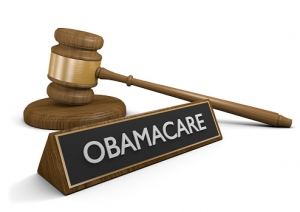Individuals
Insurance companies are concerned that some people are abusing the Special Enrollment Period (SEP) that is available in the individual marketplace. They have indicated at least some people are delaying enrollment in coverage until they get sick, applying for coverage only once they need it, and then canceling the coverage after treatment. They further argue that there aren’t enough rules in place to verify if a person actually experienced a qualifying event which would trigger a SEP.
- The Cadillac Tax has been delayed by two years until 2020.
On December 11, 2015, the Department of Health and Human Services (HHS) posted guidance for states interested in seeking a State Innovation Waiver under Section 1332 of the Affordable Care Act (ACA).
- The Individual Mandate penalties increase to $695 per adult ($347.50 per child) or 2.5% of household income, whichever is greater.
- The Employer Mandate expands to include all employers who have 50 or more employees.
- The Employer Mandate offer rate increases from 70% to 95%.
- Employer reporting related to the offer of coverage is due for the first time during Q1 2016.
- Enroll in Part B for the first time in 2016; or
- Those who don’t currently receive Social Security benefits; or
- People who have Medicare and Medicaid, and Medicaid pays the Part B premium; or
The open enrollment period (OEP) in the individual market will begin on November 1, 2015 and end on January 31, 2016.
During this time period, just about anyone can enroll or make plan changes to coverage in the individual market.
Here are some helpful reminders as the OEP approaches:
Who is eligible for a subsidy?
There are a number of factors that affect eligibility or can disqualify an individual for a subsidy, such as:
On October 1, 2015, the medical industry launched ICD-10 in the U.S. ICD-10, which stands for the International Classification of Diseases, 10th revision, is a medical classification system adopted by the World Health Organization (WHO). Simply put, it’s an international coding system that requires physicians, hospitals and other medical providers to assign a unique number for every patient disease, diagnosis, abnormal finding, cause of injury, etc.
- HSA contributions are tax deductible……just like 401(k) contributions.










